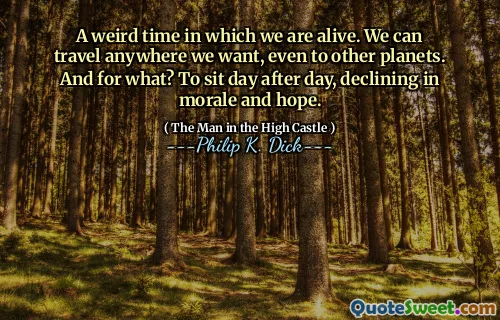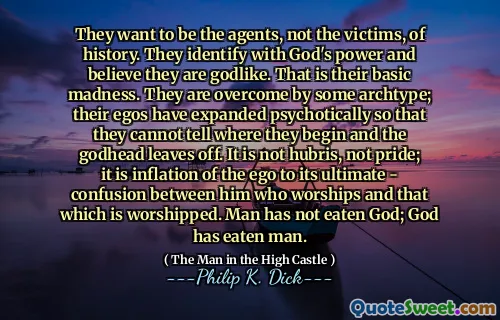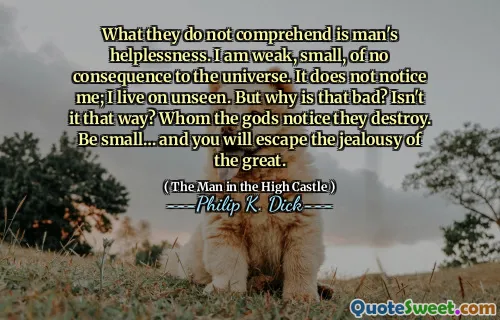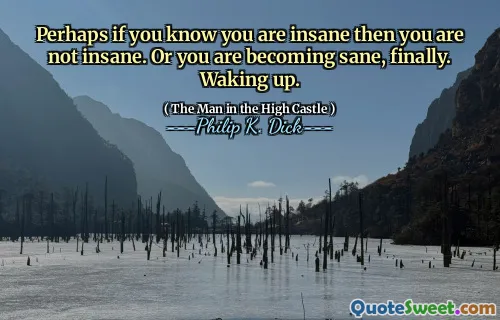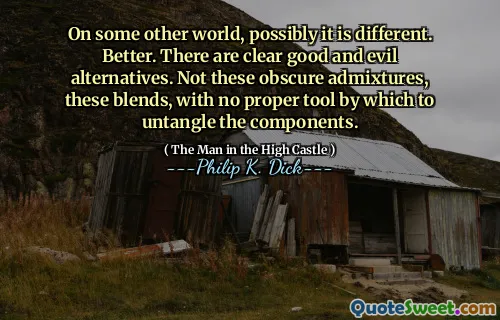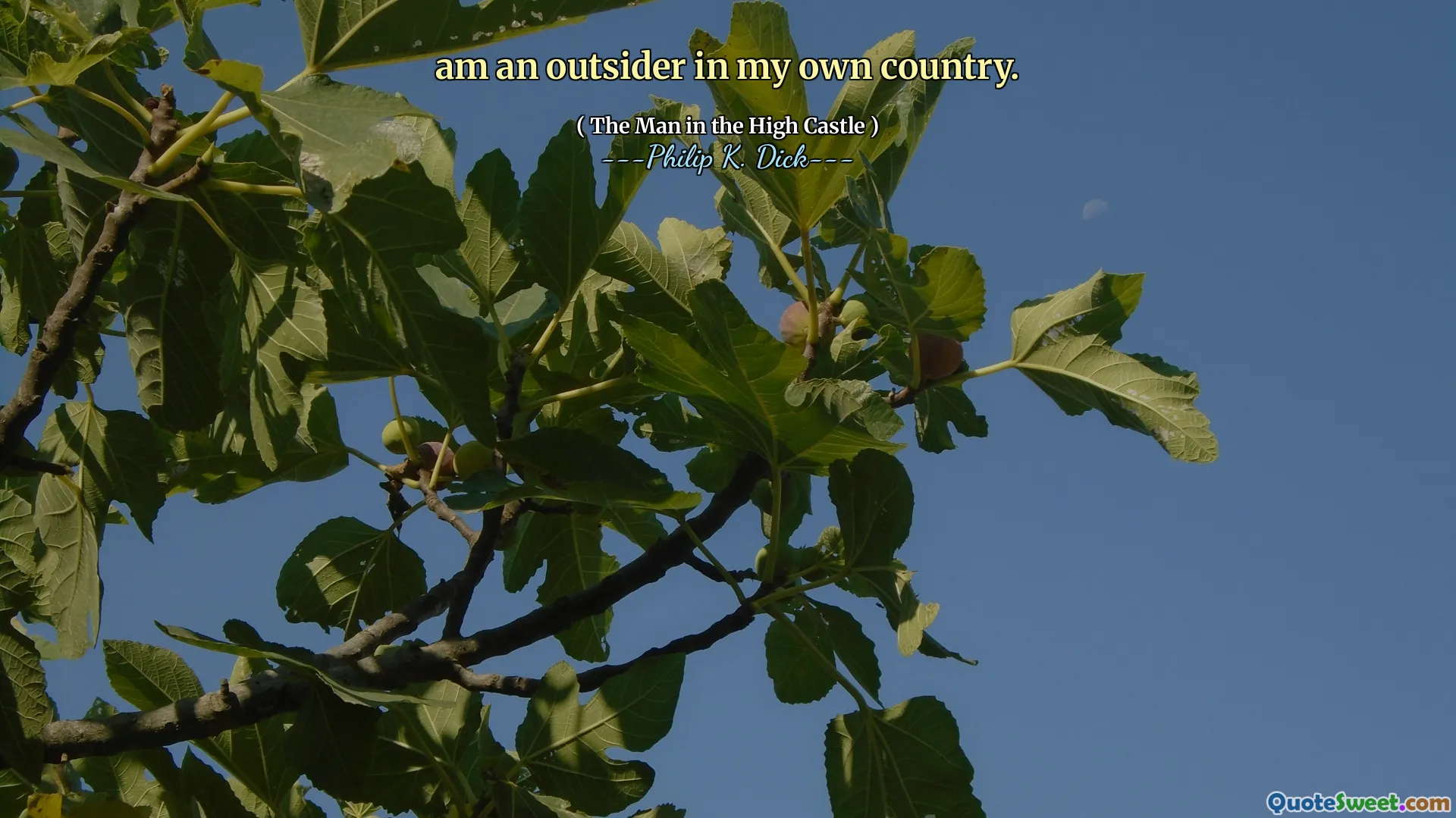
am an outsider in my own country.
In Philip K. Dick's novel, "The Man in the High Castle," the author explores themes of identity and alienation through the experiences of characters living in a world altered by a different outcome of World War II. The phrase "I am an outsider in my own country" encapsulates the profound sense of disconnection that individuals feel in their own homeland, shaped by oppressive political regimes and cultural changes. This feeling of being an outsider reflects the internal conflicts and struggles associated with navigating a society that no longer aligns with one's values.
The novel presents a dystopian reality where the characters grapple with their identities against the backdrop of an oppressive regime. As they confront the harsh societal norms and the weight of history, their journeys illustrate the search for belonging and understanding in a fractured world. The narrative emphasizes how external factors can transform one's perception of home, leading to existential questions about loyalty, identity, and freedom in a landscape defined by power and ideology.
